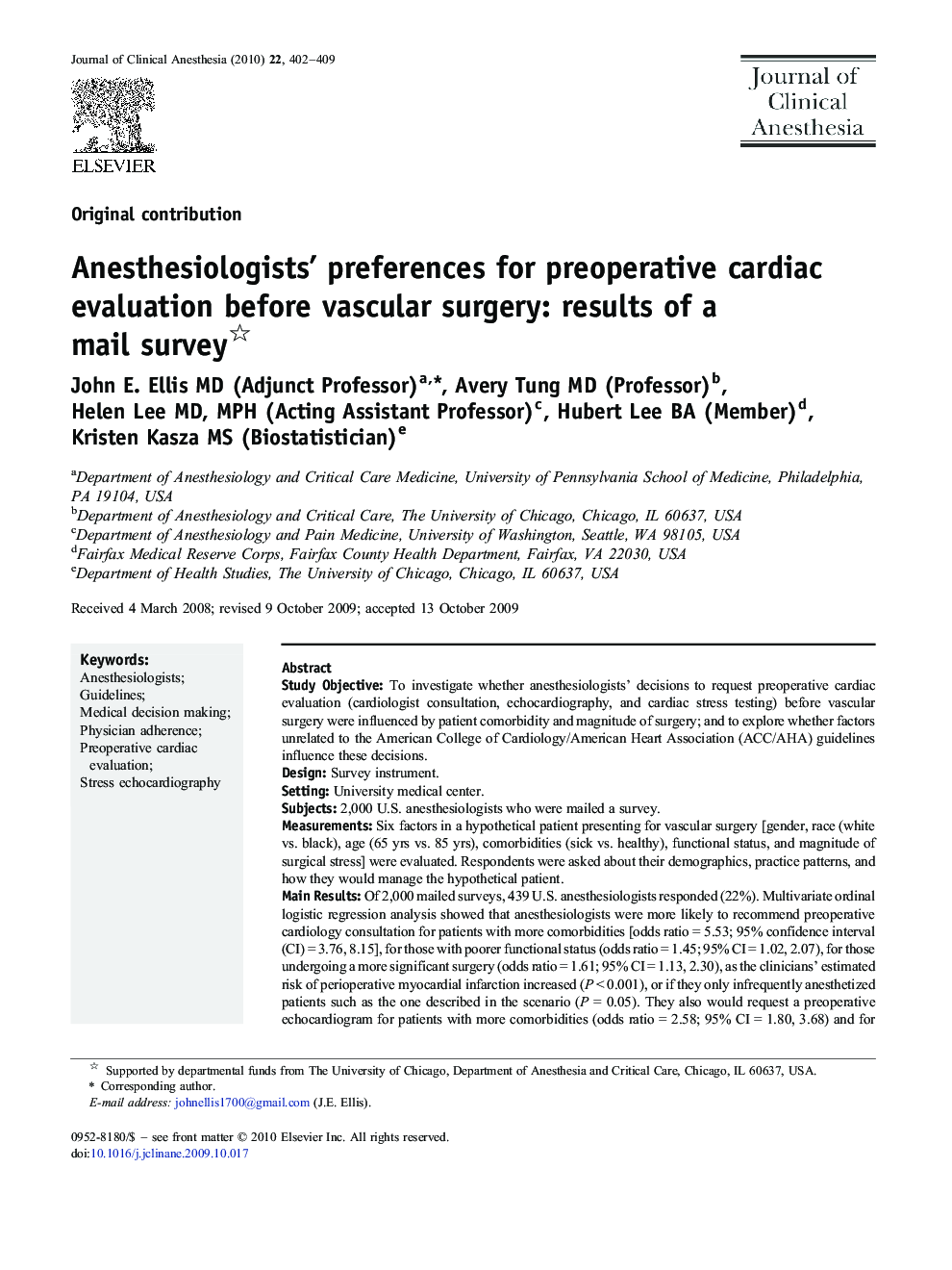| Article ID | Journal | Published Year | Pages | File Type |
|---|---|---|---|---|
| 2762995 | Journal of Clinical Anesthesia | 2010 | 8 Pages |
Study ObjectiveTo investigate whether anesthesiologists’ decisions to request preoperative cardiac evaluation (cardiologist consultation, echocardiography, and cardiac stress testing) before vascular surgery were influenced by patient comorbidity and magnitude of surgery; and to explore whether factors unrelated to the American College of Cardiology/American Heart Association (ACC/AHA) guidelines influence these decisions.DesignSurvey instrument.SettingUniversity medical center.Subjects2,000 U.S. anesthesiologists who were mailed a survey.MeasurementsSix factors in a hypothetical patient presenting for vascular surgery [gender, race (white vs. black), age (65 yrs vs. 85 yrs), comorbidities (sick vs. healthy), functional status, and magnitude of surgical stress] were evaluated. Respondents were asked about their demographics, practice patterns, and how they would manage the hypothetical patient.Main ResultsOf 2,000 mailed surveys, 439 U.S. anesthesiologists responded (22%). Multivariate ordinal logistic regression analysis showed that anesthesiologists were more likely to recommend preoperative cardiology consultation for patients with more comorbidities [odds ratio = 5.53; 95% confidence interval (CI) = 3.76, 8.15], for those with poorer functional status (odds ratio = 1.45; 95% CI = 1.02, 2.07), for those undergoing a more significant surgery (odds ratio = 1.61; 95% CI = 1.13, 2.30), as the clinicians’ estimated risk of perioperative myocardial infarction increased (P < 0.001), or if they only infrequently anesthetized patients such as the one described in the scenario (P = 0.05). They also would request a preoperative echocardiogram for patients with more comorbidities (odds ratio = 2.58; 95% CI = 1.80, 3.68) and for those undergoing a more significant surgery (odds ratio = 1.59; 95% CI = 1.12, 2.25). A preoperative stress test was recommended for patients with more comorbidities (odds ratio = 3.01; 95% CI = 2.06, 4.38) and for those with a more significant surgery (odds ratio = 1.74; 95% CI = 1.15, 2.63). Other factors associated with request for a preoperative stress test were female gender of the anesthesiologist (odds ratio = 1.79; 95% CI = 1.11, 2.87), those with less experience with such patients (P = 0.05), and those from New England (odds ratio = 2.16; 95% CI = 1.01, 4.62).ConclusionsAnesthesiologists’ preferences for preoperative cardiac evaluation are generally consistent with evidence-based and expert-based AHA/ACC guidelines. However, other physician factors (ie, gender, years in practice, and familiarity with the surgical procedure) also influenced these decisions.
